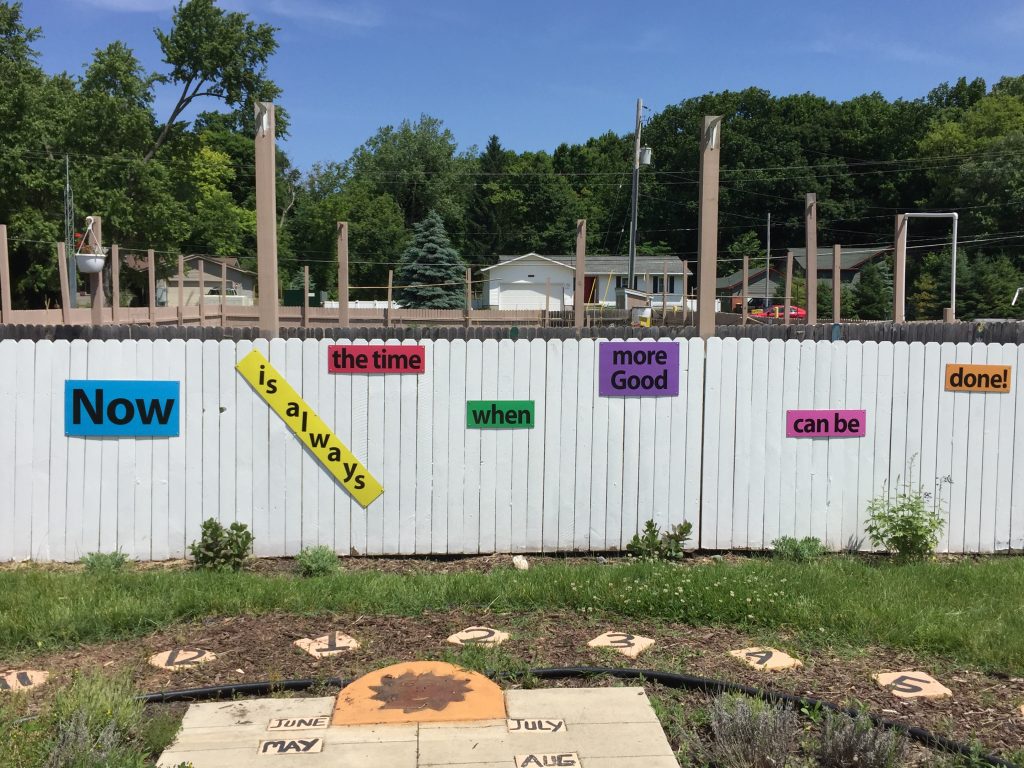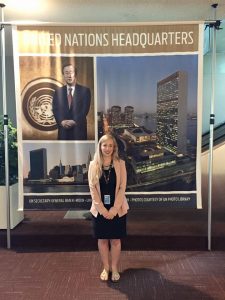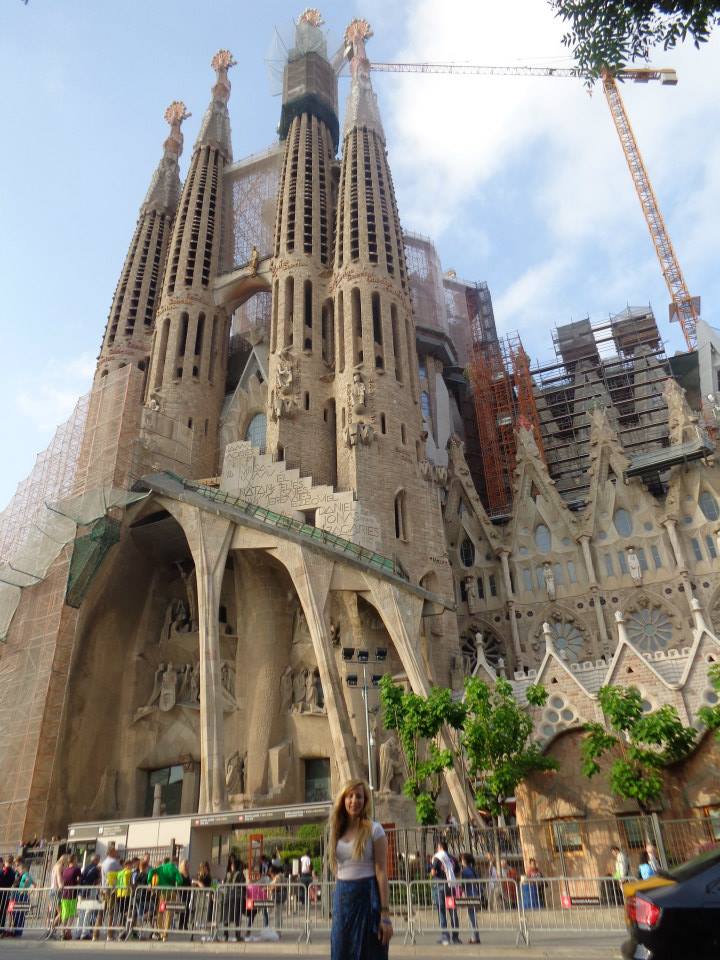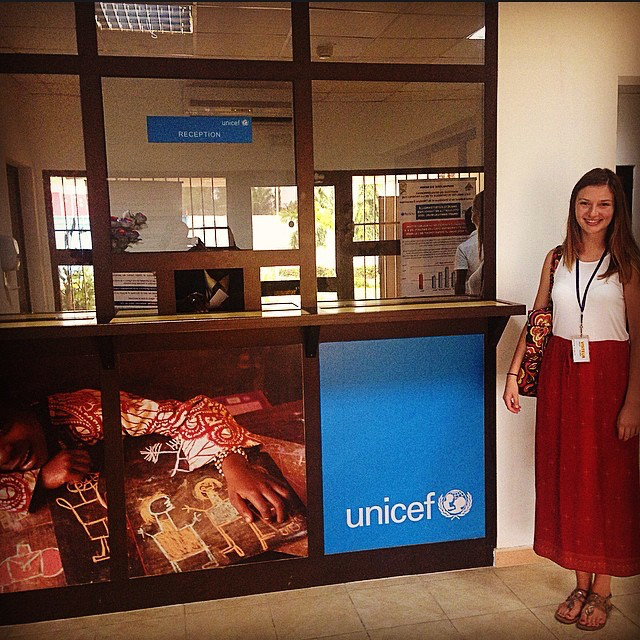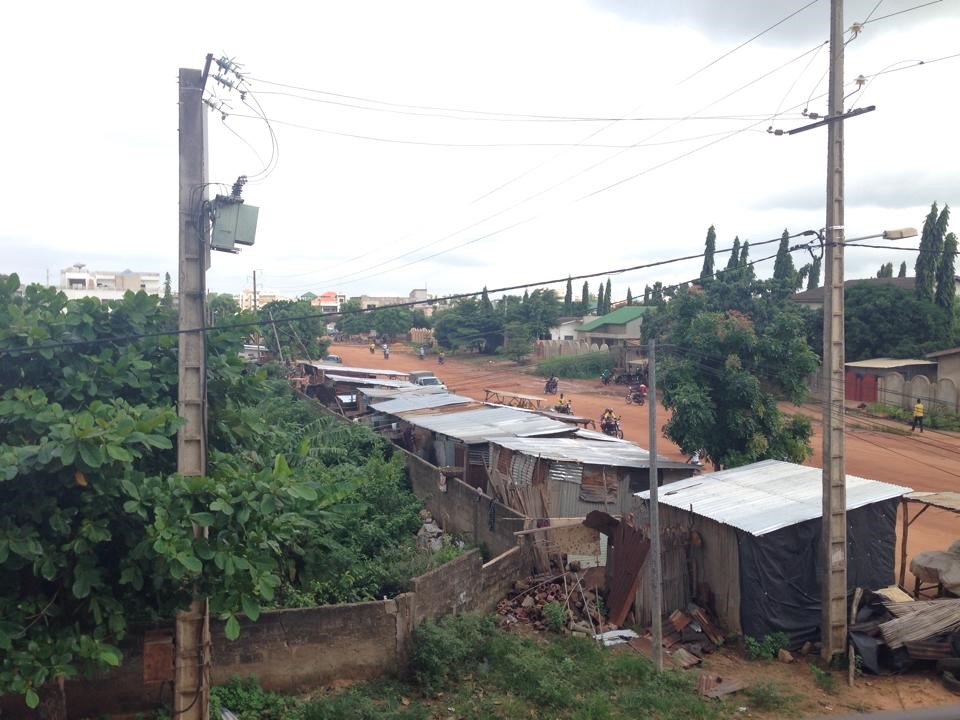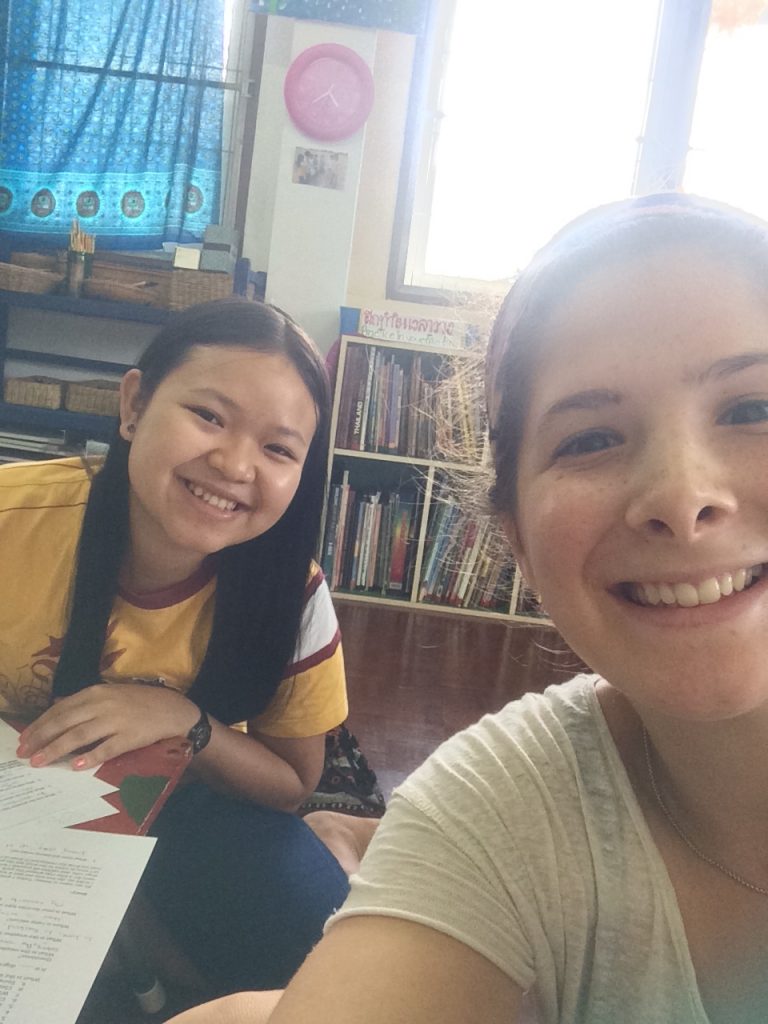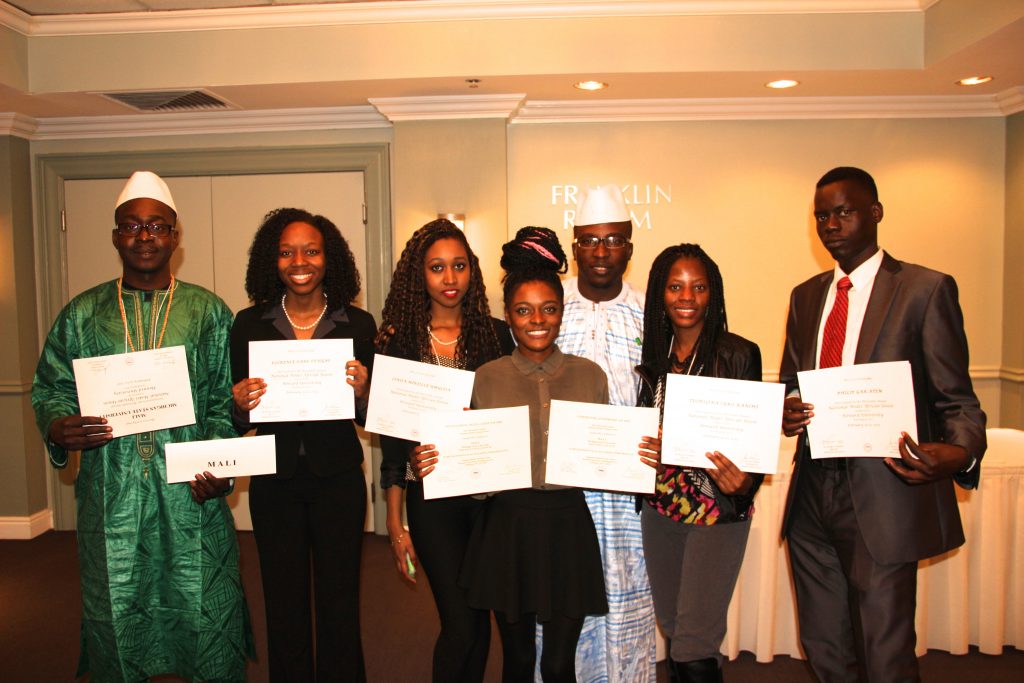My name is Isabel Hershey, a senior at Michigan State University. I am pursuing two degrees- one in the Arts and Humanities and one in Anthropology. I also have three minors, one of which is the Peace and Justice Studies minor.
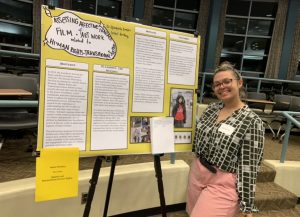 I became interested in peace and justice topics during my first year of classes in the Residential College of the Arts and Humanities. I then researched Peace and Justice Studies at MSU and took my first class for the minor—The Anthropology of Social Movements. My first few courses within the minor altered my worldview; from learning about peace and justice theoretical frameworks and fieldwork methodology, I understood my potential as an agent for change in my community. These classes unlocked new perspectives about local and global conflict and solutions through discussion with my peers, readings, and engaging lectures. Additionally, I find the information I learned through these courses applicable to every class I have and am currently taking at MSU. Because of the Peace and Justice Studies minor, I can provide peace and justice perspectives in all of my classes and am more prepared to be a local and global citizen.
I became interested in peace and justice topics during my first year of classes in the Residential College of the Arts and Humanities. I then researched Peace and Justice Studies at MSU and took my first class for the minor—The Anthropology of Social Movements. My first few courses within the minor altered my worldview; from learning about peace and justice theoretical frameworks and fieldwork methodology, I understood my potential as an agent for change in my community. These classes unlocked new perspectives about local and global conflict and solutions through discussion with my peers, readings, and engaging lectures. Additionally, I find the information I learned through these courses applicable to every class I have and am currently taking at MSU. Because of the Peace and Justice Studies minor, I can provide peace and justice perspectives in all of my classes and am more prepared to be a local and global citizen.
Additionally, I had opportunities to do research and take part in events with visiting speakers and artists. With other P&J students, I was in Elisabeth Ida Mulyani’s performance piece, In Loving Memory of the Disappeared Ones. I am grateful to have experienced this as a student in the Peace and Justice Studies minor.
Bree Casper – AmeriCorps member at Edgewood Village
“Now is always the time when more good can be done” – John Duley
My name is Bree Casper and I am a senior studying anthropology, with minors in cognitive science and peace and justice studies. This summer I served as an AmeriCorps member at Edgewood Village, a local non-profit housing corporation. Edgewood Village’s mission is to provide affordable housing for low-income residents in East Lansing. Edgewood Village is a unique place because it has a community center, which acts as the heart of the community and provides programming for people of all ages. They offer kid’s programming ranging from after school activities to summer education, to keep kids engaged throughout the year. Adults can also find something to support their interests there, by participating in programming ranging from different types of support groups to monthly potlucks.
Another unique aspect of Edgewood Village is its community garden, which is where I come in. This summer I was the adult garden educator in the Edgewood Village Community Garden. I managed the allotment garden where residents had their own plots. In addition I cultivated community plots where the fruits and vegetables that I grew were donated back to the community. I also led fitness and nutrition programming including classes like chair yoga and nutrition based documentary series.
It was in my time with Edgewood that I learned how truly unsettling food insecurity is in the United States. Many of my residents had trouble securing wholesome, nutritious meals once a day – let alone for three meals a day. I witnessed first hand how the aid given to those in the most desperate of situations may not even be to the receiver’s best interest. Most of the food given through food subsides are nutrient-poor, heavily processed foods. A lot of the community members that received these subsides couldn’t even eat the food due to health problems or dietary needs. More importantly, many already facing significant health issues were left to eat this food, which only exacerbates the health issues they are already battling. As if these issues weren’t enough, many residents lacked proper education about health and nutrition.
This showed me why the garden is such an important landmark in the community. Throughout the summer, I witnessed people coming together in the garden and growing food that they would not otherwise have had access to. I saw people who had no prior gardening experience harvest more than they could eat. I saw friendships formed over soil and plants and how much simple gardening routines could benefit a community. Beyond this, nutrition lessons proved to be incredibly helpful. Residents learned how to prepare healthier meals, and make healthy food substitutes in their diets. I also had a number of residents come together to form a chair yoga class – a program that has helped them relieve stress and continues even after I have left the program.
While I saw the residents’ attitudes and accessibility to food markedly change in my short 4.5 months, they also shaped how I view injustices in the world. There are a lot of factors that have led to the state of food injustice that we are in. Serious policy work needs to happen on the governmental end to aid those in need of more secure food access. This is not an issue that can be solved overnight.
In one of the gardens, aptly named the Peace Thyme Garden, there is a quote from a poem written by one of Edgewood’s founders, John Duley, “Now is always the time when more good can be done.” This quote serves as a constant reminder of the community’s purpose. Moreover, it completely embodies what I learned at Edgewood Village Community Garden this summer. My experiences showed me that there are people that need help in our communities right now. We can sit around and wait for others to devise a solution or we can take action. When you bring a group of motivated people together, they can inspire much more useful change, more immediately, for those in need. I saw my residents come together, work together, sweat together, and learn together. They showed how truly dedicated they were to health and wellness, and when given the proper tools and knowledge excelled beyond belief. Action can start wherever you are, with resources close to you, and can make major changes in the lives of those in our own communities. I saw my residents take justice into their own hands and become more food secure over four months. While there is still a lot of injustice in the realm of food security, I have seen how the actions of a few people can change a community one step at a time.
The peace and justice minor in combination with my experience at Edgewood Village showed me how themes of peace and justice manifest in real life. It allowed me to apply what I had learned in class to real life situations. It also allowed me to add onto what I had learned through first hand experience. Going forward, I will take this experience and the themes of peace and justice into the realm of addiction. At the graduate level I hope to conduct in-depth anthropological research on Americas “war on drugs” and how it affects addicts. More importantly, I hope to bring peace and justice into the conversation and change the way addicts are treated and change the discourse of “the war on drugs” in America.
Working in the garden
Doing service for the annual Russ Mawby Signature Service Project
A picture of MSU Volunteers working in the garden for a service day
Jen Beckner – TEDxMSU
Christina Igl – Valencia, Spain
¡Buenos días a todos! My name is Christina Igl and I am a senior majoring in Arts & Humanities and Spanish with a minor in Peace and Justice Studies. I am currently studying abroad in Valencia, Spain for the duration of spring semester. While I am taking classes and earning college credit, the learning that I have found most valuable has been outside the classroom. Through this program I am immersed in the Spanish culture by living with a Spanish family, participating in community festivals, events, and organizations, while also interacting with Spanish students my age.
Spain is a culturally diverse country with an equally diverse history. This diversity is easily visible in all facets of life in Spain. Everything from the architecture to the daily customs are shaped by influences of the Visigoths, Celts, Greeks, Romans, Jews, and Muslims. Cathedrals are built on top of mosques that were built on top of cathedrals and so on. Spain is currently divided into autonomous communities with their own political power and language (even though Castellano Spanish is still widely spoken). These autonomous communities are further divided into 50 providences, each with their own history and traditions.
So why am I sharing this?
I am living what I learned in my studies at Michigan State. Spain’s past is still incredibly visible in the present. Of course, Spain is not the only country whose past affects its present… it’s much easier for me to observe, study, and discuss this concept in Spain than in my home country. I have the opportunity to see Spain as an outsider, maybe causing me to be more objective in the connections I make. As time passes, I find myself becoming more of an insider in the Spanish culture, which in turn, helps me to look at culture in the United States with a more critical eye. I have something to compare it against.

Language study is another area where my coursework, experiences in Spain, and policy in the United States intersect. A variety of languages are spoken in the United States and this variety is a hot topic in politics. There are arguments for and against making English the official language and placing restrictions on what foreign languages are allowed to be spoken within the U.S. borders. Spain is a wonderful case study for this situation. There are multiple co-official and recognized languages spoken in Spain such as Castellano, Gallego, Catalán, Aranés, and more. Spain is able to maintain plurality of language, politics, and culture and still be one country, a feat not easily accomplished, but achievable. Through living in this wonderful country, I have seen peace and justice in action.

There is no way to capture all that I have learned on this study abroad program, no way to measure the critical thinking skills and expansion of my view of the world and my place in it. I do know that I will be taking these skills with me beyond graduation and implementing them in both my professional and personal life. Culture is such an important aspect of interpersonal relations and an essential way to achieve peace and justice in the world is to have an understanding of how culture functions in our lives.

Victoria Kulesza – Intern at the UN
Hello! My name is Victoria Kulesza and I am a senior majoring in International Relations and Spanish with minors in Peace and Justice Studies, Latin American and Caribbean Studies, and Eastern European and Eurasian Studies. During my time at MSU as a PJS student I have had numerous opportunities to utilize what I have learned in the classroom throughout the different internship opportunities I have had. Two summers ago, I was the Project Intern for a human rights NGO in Barcelona, Spain that provides for the basics needs and human rights of refugees and irregular migrants in the area. As a first-generation American, the experience really inspired me to advocate for the rights of refugees and immigrants―an issue that becomes increasingly relevant today. I have also been fortunate enough to spend this past summer in New York City interning for the United Nations Population Fund, an agency of the United Nations that promotes gender equality and international development. There I analyzed development plans for country offices all over the world and gained professional skills and connections that I would not have been able to find anywhere else.
Currently, I am part of the U.S. Department of State’s Virtual Student Foreign Service internship program working under Human Rights Officer of the U.S. embassy in La Paz, Bolivia. This is a virtual internship that allows me to research and report on human rights cases in Bolivia for the embassy while I finish my last year in East Lansing, so if you are also a student looking for any good opportunities for the year be sure to check out the VSFS program! After I graduate I hope to serve in the Peace Corps and later become a Foreign Service Officer for the State Department!
Nora Charron – Benin, West Africa
Guest Post by PJS Senior Nora Charron
During this past summer, I interned at the Institute for Empirical Research in Political Economy (IREEP) in Benin, West Africa. It is associated with the African School of Economics in Cotonou, the largest city in Benin. I was one of four research assistants who worked on a public health research project while there. Our project focused on road accidents in Benin and how the emergency care system handles such incidents. The driving and rules of the road in Benin were unlike any other I have ever seen. There is always a great deal of traffic, and speed limits and lanes seemed more suggestive than enforced. There is a high percent of accidents each year resulting in many injuries and deaths as well. Often time’s medical taxis cannot take the injured to a hospital or clinic in a timely manner, or at all. It was really interesting to see the contrast between rural and urban areas with hospitals/clinic, seeing as more resources were in the urban areas. Using the statistical programing system STATA, my job included analyzing data collected and researching trends and laws, as well as compiling a formal final report to be used at the institute and in the long run the Ministry of Health.
Benin is a really vibrant and welcoming country. I spoke French for the majority of my internship, and while it was challenging I think my language skills have improved. I lived at the research institute with the other interns, and during free we liked going down to the stands on the main roads to buy vegetables or fruit, or our personal favorite fried plantain. We often went into Cotonou which was a short drive away and explore the city. While Benin is seen as a small country geographically, it had a lot of history and culture to offer.
I think my favorite part of the internship was the opportunities we had to talk to professionals from UNICEF, WHO, UNAID and PSI. We interviewed and were able to speak with different people within these organizations about their thoughts and work on road accidents, as well as other health disparities in Benin or West Africa as a whole. I really enjoyed being able to go to the offices of these organizations and understand how they are run and see first- hand the kind of work they do. Any of these organizations are ones I would love to work for so it was really beneficial and interesting. I loved being in Africa over the summer and am looking forward to the next time I go back!
Jamie Denenberg – Chiang Mai, Thailand
Jamie Denenberg (center) with Thai Freedom House students PingPing (left) and None (right) at the non-profit cafe that they run.
Hi! My name is Jamie Denenberg. I have a double major in International Relations and Economics with a double minor in Peace and Justice studies and Jewish Studies. This past summer I spend 7 weeks interning at Thai Freedom House in Chiang Mai, Thailand. Thai Freedom House provides free community education for the local Burmese minority refugees in the local area. Burma is notoriously known for its violence toward their ethnic minorities. Currently, there are around 3 million Burmese refugees living in Thailand. Throughout my time at Thai Freedom House I was able to work directly with the refugees while seeing the difficulties, and rewards, connected to running an International NGO. While I did many things during my time there, the most rewarding experiences came while I I was tutoring an 18-year-old girl, Own Khin. Own Khin came from the Shan State in Burma and was working in Thailand for the summer.
Own Khin and Jamie.
Due to the structure of the Burmese education system, Own Khin was unable to pass Burma’s standardized tests to complete Grade 10. For two hours a day, five days a week I met with her for one-on-one English tutoring which will hopefully help her pass the English section of her exam. The impact of this tutoring did not resonate with me until I received a text message from her the day I was leaving Thailand, simply stating “I will always remember you.-Own Khin”. Working in Thailand has not only taught me about the Burmese culture, but the important impact a grassroot NGO can make on people’s lives. Without Thai Freedom House, many of the students would not have an opportunity to get an education. This experience has reiterated my love for travel and working with different cultures.
Moussa Traoré – Model AU Conference
PJS Student represents Mali at Model AU Conference
I recently attended the Model AU Conference as a peace and justice student and the vice president of African Student Leadership Association (ASLA) which was created to ponder and propose solutions to a broad range of issues affecting the world and African people through entrepreneurship, political participation, environmental sustainability, economic and social development, and peace promotion.
Due to our vision and mission, I have successful participated at the Model African Union Conference for the last two years. This year at the 13th Model African Union Conference at Howard University, we represented Mali and the Central African Republic. With a delegation of 15 MSU graduate and undergraduate students, personally I represented Mali as an officer and vice chair for peace and security committee. Where I had to double task participate as and delegate of peace and security and as an officer for peace and security community as well. We discussed and wrote resolutions on several issues 1. African Standby Force 2. Conflict Management and Resolution in: A. Egypt B. Sudan-Darfur C. Somalia D. The Situation in Mali E. The Central African Republic F. South Sudan.
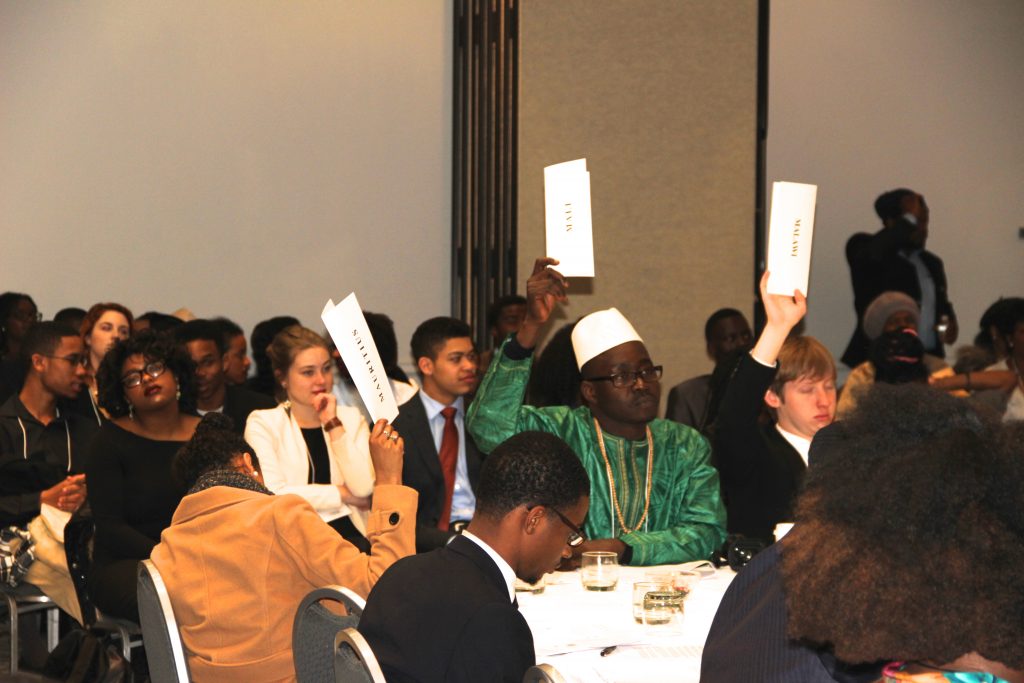
At the end of the model we were subject to submit to the Assembly of Heads of State and Government one consolidated resolution on each one of the agenda topics. Once we arrived in DC, we visited both the Mali and Central African Republic embassy where we engaged in an informative dialog with representatives from each country that assisted us in advocating for their country better. We were even lectured by the African Union ambassador to the United States Dr Amina Salum Ali. In four consecutive days, I participated in intense diplomatic procedure in order to improve peace and security issues plus many other African issues, I worked harmoniously and efficiently together with other student delegates from colleges in the US and Canada.
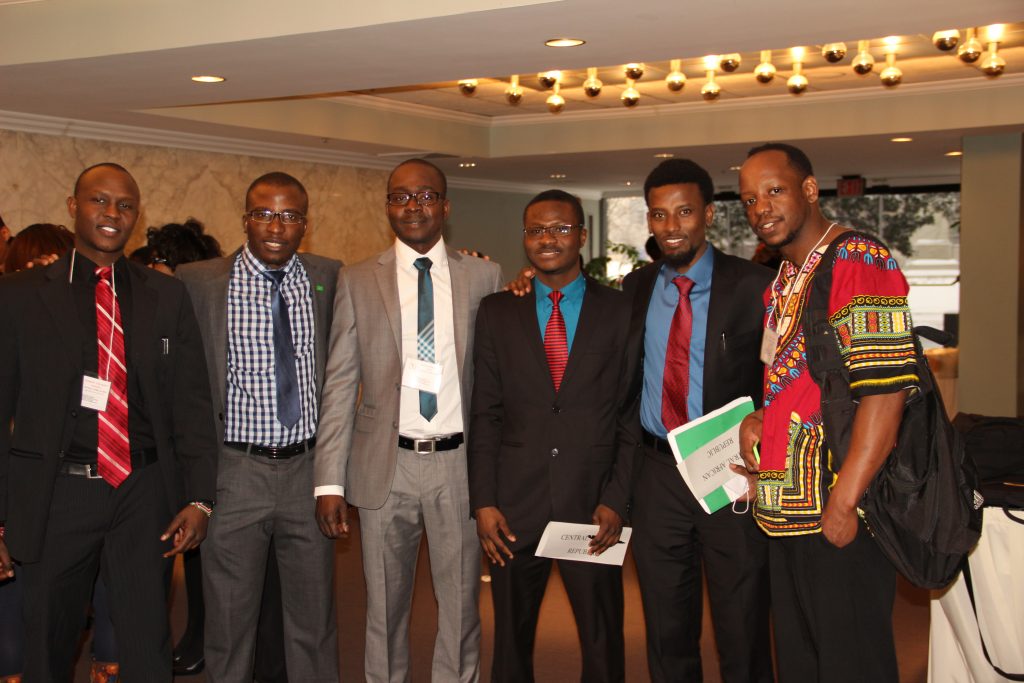
As I end another productive year, I look forward to peace and justice study growing and cultivating peace and justice globally through many programs and courses that raises the awareness of current peace and justice issues on the Michigan State University campus.
